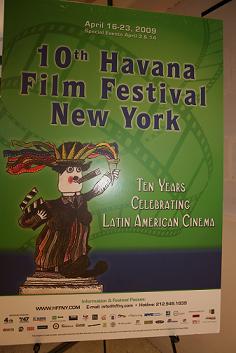
The highlight of opening night at Havana Film Festival New York was the presentation of Freddy Vargas’s 12 minute film, “Hispaniola,” which won HBO’s Best Short Film Competition Award in 2007 at the New York Latino Film Festival.
Vargas, born in the Dominican Republic and currently living in New York, returned to Santo Domingo to shoot “Hispaniola,” a docudrama that ambitiously–and successfully–tackles a number of themes relevant to Dominican society today, including racism, relations between Haitians and Dominicans, immigration, and economic challenges in the developing world.
